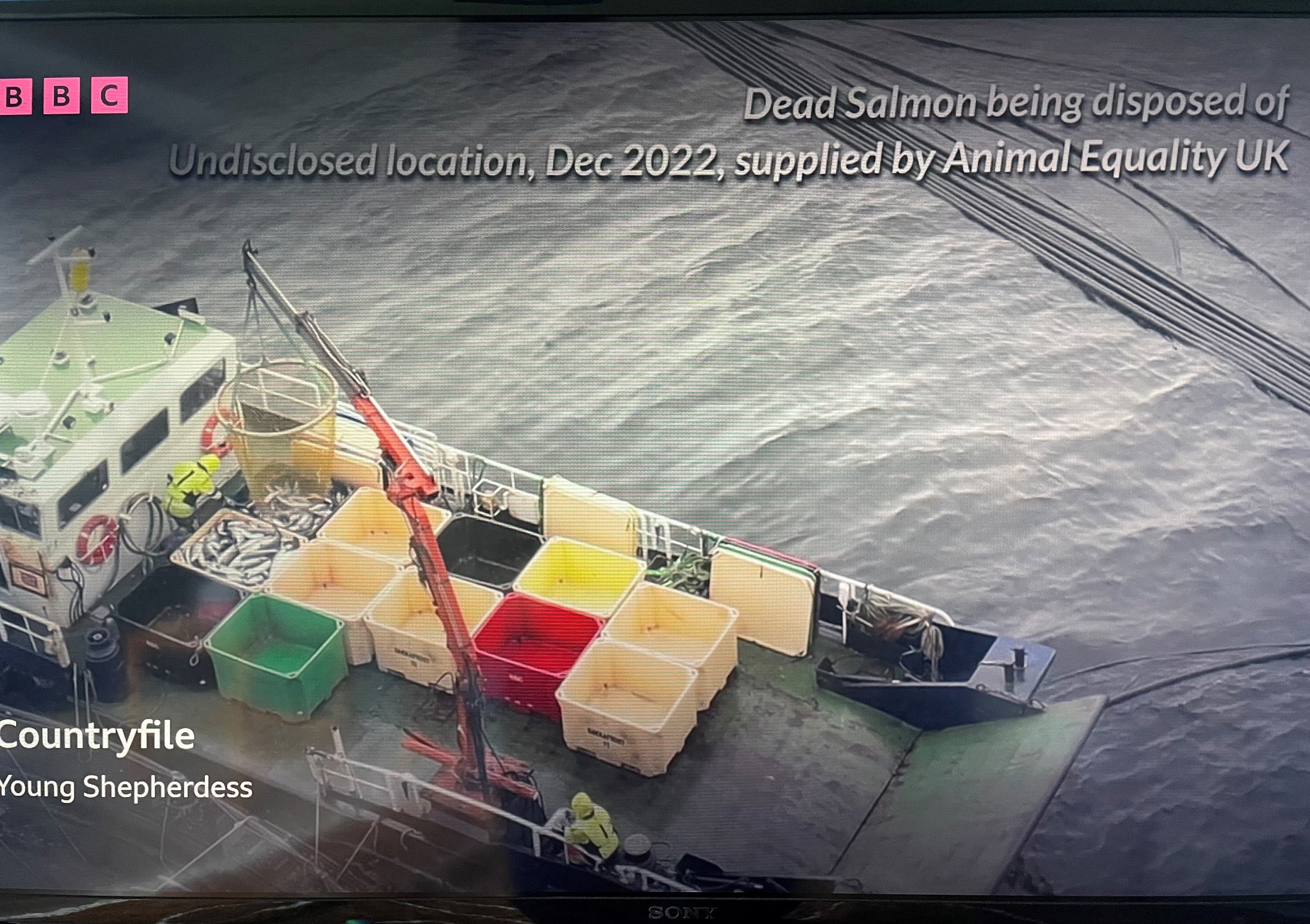Scottish Salmon: The Loch Long Saga Continues…
We have written to our members and supporters a number of times about the scandal on Loch Long. The first time we were in touch it was when Freddy and Graeme attended the public meeting of the Loch Lomond and Trossachs Planning Board to consider the Loch Long Salmon Company’s application to build a development on the Loch. We were delighted to report that the Board had listened to the concerns of the community and the evidence-based case against the new development and that the application was refused. Then we told you that LLSC wanted to appeal. Then we told you about the Planning Minister’s extraordinary intervention to recall the local decision personally and how we wrote to him to express our dismay.
Since then, we have joined forces with our friends at Animal Equality UK, Animal Aid, OneKind, AFF the Clyde, Wildfish and Compassion in World Farming to campaign against salmon farming across Scotland. Much has happened to tell you about. Many of you will have seen Countryfile at the weekend (Sunday 10 September) where there was a segment on salmon farming and the exceptionally high premature fish mortality levels. Some 7 million have died already this year along putting 2023 on course to beat the morbid fatality records of 2022. The programme looked at Loch Long as a case study. If you haven’t seen it, please do watch it on the BBC iPlayer (log in required, episode title “Young Shepherdess”, the segment starts at 19 minutes and 55 seconds in and lasts around 10 minutes).
Footage from our partners Animal Equality UK, shown on the programme
Again we saw the MD from Loch Long Salmon plug the case that his firm’s technology is tried and tested throughout the world, is clean and green, great for the local economy and cuts out the harms inherent in conventional salmon farming. Throughout the programme we, with our partners live tweeted to push back against these claims and the claims of others across the industry. LLSC’s MD reiterated the claim that the technology they have hitched their application to would cut mortality. What he didn’t mention was that trials in Canada were cut short exactly because of high salmon mortality rates. So bad were they, that the trials were abandoned without conclusion. He said that ministers were examining their appeal giving the impression that what we’re witnessing is standard practice. It isn’t, and the implication is tantamount to misleading the public. It is exceptional for ministers to intervene. Such is their commitment to the local community he cited one of the reasons for their appeal as being that the residents simply didn’t understand and so he would ‘mansplain’ it to them.
In the aftermath of the programme the Sun, yes, ran a story reporting the disgust viewers expressed taking to social media to register how horrified they were by the images of diseased and dead salmon. We and our partners are jointly pitching stories to the press as we speak and are optimistic of positive coverage in the coming days.
However, we along with our friends across the sector are clear this campaign isn’t just about Loch Long, important though it certainly is. It’s about the industry itself, its practices, and fish welfare more broadly.
We are working to make the case that bacterial infections cause distress and exacerbate mortality rates, high population density contributes towards distress and mortality. Countryfile cited rising sea temperatures as exacerbating bacterial growth. Animal Concern is not an environmental organisation, but we can likely agree that rising sea temperatures is not a phenomenon that is likely to reverse any time soon. That, the LLSC is overpromising and will underdeliver at a cost to the local community, the environment, and of course to farmed fish.
We are jointly writing to the Scottish Government expressing concerns about the industry and calling on them to act. We will share more details of this when we are able.
We will continue to communicate our work on salmon farms in the coming months. In the meantime, if you are able, please help support our work on salmon farms and to end animal exploitation elsewhere. Donations of any size are essential to campaigning.


